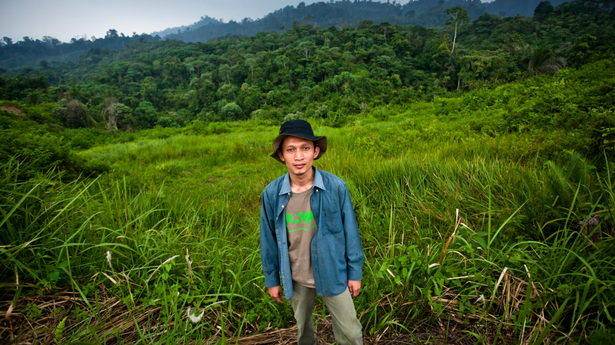
Imagine a tropical rainforest so dense that you can hear but never see an orangutan barking just feet away. Where the world’s largest flower unfurls its speckled foot-long petals. Where the land is so fertile, it can support 4 million people with food and water.
Scientists call the more than 6-million-acre Leuser Ecosystem one of Southeast Asia’s most important forests. It is the only place in the world where orangutans, rhinoceros, elephants, tigers, and sun bears share the same home. But this irreplaceable rainforest is facing a dangerous adversary: palm oil.
Ninety percent of the world’s palm oil is grown in Indonesia, which also has the world’s highest rate of deforestation—more than 2 million acres of rainforest are cleared every year. Including in the Leuser Ecosystem. Companies have illegally slashed and burned 25,000 acres within the protected area’s boundaries to plant manicured rows of African oil palms.
Conservation biologist Rudi Putra recognized what needed to be done. He brought together local village chiefs, government officials, and nonprofits to win their support for protecting the Leuser Ecosystem. His group used a Greengrant to organize community members to dismantle the illegal palm oil plantations. Together, they’ve already removed more than 20 oil palm groves and returned some 1,200 acres to the forest. This is the first time a forest recovery project of its type has been launched in Indonesia.
“We cleared our first plantation by cutting down all of the oil palms,” Rudi said. “And the forest returned on its own, naturally.”
Rudi’s work continues, but already, the habitat is regenerating. Elephants are coming back. And local people are stepping up to keep illegal palm oil out and protect the Leuser Ecosystem’s delicate future.
In October, we learned that Rudi’s team has also persuaded the local government to help remove illegal plantations. They are one step closer to saving the Leuser Ecosystem.
Update: In September 2021, another one of our grantees, the Orangutan Information Center, was featured in the New York Times. Read the full story here.
Photo: Goldman Environmental Prize
